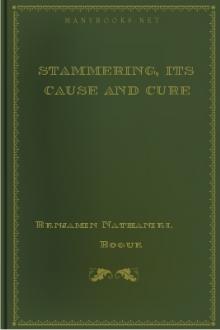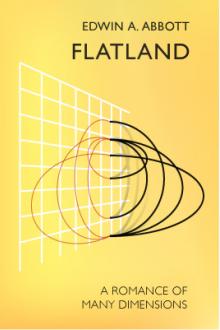The Jetsam - Lara Biyuts (best adventure books to read .TXT) 📗

- Author: Lara Biyuts
Book online «The Jetsam - Lara Biyuts (best adventure books to read .TXT) 📗». Author Lara Biyuts
“There is no such thing as moral or immoral book. Books are well written, or badly written. That is all.”
more quotes
For those who read the book A rebours (Against the Grain or Against Nature, 1884, the book, which Oscar Wilde loved) by Joris-Karl Huysmans (1848–1907).
With the aid of some quotes from the book I try to prove that the main character of the novel -- Des Esseintes “a slender, nervous young man of thirty, with hollow cheeks, cold, steel-blue eyes, a straight, thin nose and delicate hands” -- is a vampire or something of the kind as a person or entity that definitely lives a nocturnal life.
He lives a life of a nocturnal thing, after “a deep silence wrapped the little house that lay asleep in the darkness.” His first meal he has in the evening:
“At five o’clock in winter, after dusk had closed in, he ate an abstemious breakfast of two boiled eggs, toast and tea; then came dinner at eleven; he used to drink coffee, sometimes tea or wine, during the night, and finally played with a bit of supper about five in the morning, before turning in.”
The windows are designed in some odd way in order that the daylight could not penetrate the rooms freely:
“The dining-room in question resembled a ship’s cabin with its wooden ceiling of arched beams, its bulkheads and flooring of pitch-pine, its tiny window-opening cut through the woodwork as a porthole is in a vessel’s side.
Like those Japanese boxes that fit one inside the other, this room was inserted within a larger one,--the real dining-room as designed by the architect.
This latter apartment was provided with two windows; one of these was now invisible, being hidden by the bulkhead or partition wall, which could however be dropped by touching a spring, so that fresh air might be admitted to circulate freely around and within the pitch-pine enclosure; the other was visible, being situated right opposite the porthole contrived in the woodwork, but was masked in a peculiar way, a large aquarium filling in the whole space intervening between the porthole and the real window in the real house-wall. Thus the daylight that penetrated into the cabin had first to pass through the outer window, the panes of which had been replaced by a single sheet of plain mirror glass, then through the water and last of all through the glazing of the porthole, which was permanently fixed in its place.
At the hour when the steaming samovar stood on the table, the moment when in Autumn the sun would be setting in the west, the water in the aquarium, dull and opaque by daylight, would redden and throw out fiery flashes as if from a glowing furnace over the light-coloured walls.”
Even the moonlight cannot penetrate the rooms unless through the bottle-glass:
“Outside the snow was falling. In the lamplight, ice arabesques glittered on the dark windows and the hoar-frost sparkled like crystals of sugar on the bottle-glass panes speckled with gold.”
He hates how nature looks by daylight:
“As he used to say, Nature has had her day; she has definitely and finally tired out by the sickening monotony of her landscapes and skyscapes the patience of refined temperaments. When all is said and done, what a narrow, vulgar affair it all is, like a petty shopkeeper selling one article of goods to the exclusion of all others; what a tiresome store of green fields and leafy trees, what a wearisome commonplace collection of mountains and seas!”
which is absolutely wrong, if you ask me.
Thus, we can see that the hero’s habits, loathings and likings look much like a vampire’s.
If a vampire, then a vampire-aesthete:
“…a single book, bound in sea-green morocco, the Adventures of Arthur Gordon Pym, specially printed for his behoof on pure linen-laid paper, hand picked, bearing a sea-gull for water mark.”
Des Esseintes’ conception of sunlight, his feelings about the sun, or maybe Huysmans’: “As though stirred by furious pokers, the sun showed like a kiln-hole, darting a light almost white-hot, burning one’s face.”
(from AGAINST THE GRAIN by JORIS-KARL HUYSMANS Tr. John Howard)
Vampires are different. Some of the known or renowned ones I like, some I dislike. To Vampire Des Esseintes, in case if he is such, I feel indifferent, for really, Author did not do much in his book to make us love his main character.
Any thoughts?
Autumn in Springtime, Springtime in Autumn
(essay)
I
In his lifetime, Anton Chekhov was often blamed for the “unnatural sin” of lack of ideas, which his contemporaries regarded as deadly, claiming that most of his works were “lacking both principles and ideas.” His readers, today, we can judge, whether it is true or not so. As I think, if his contemporaries are right, then that’s the beauty of his art. At the same time, this accusation sounds oddish for us, his compatriots, who knew from our school days of the fact that Chekhov was a lifelong bearer of most sublime ideals. However, for the Russian mass media of his time, which was largely “progressive,” that is “vaguely liberal,” he was a decadent.
That’s all right, we can say, let him be, but… even this blatant decadent, in 1892, when he read the book “My Diary” by Marie Bashkirtseff, never found any kind words in his review, but he expressed his negative attitude towards the book, which we can read in his published Letters, strangely forgetting mercy and humanism of his first profession and titling the author, who died young, “egocentric.”
Marie Bashkirtseff (November 11, 1858 - October 31, 1884) was Ukrainian-born Russian painter and sculptor, Oscar Wilde’s contemporary, one of those who shared his individualism and devotion to Art.
A piece of information from Wikipedia:
Born to a wealthy noble family, Marie Bashkirtseff (Maria Bashkirtseva) grew up abroad, traveling with her mother across most of Europe. From the age of 13, she began keeping a journal.
Titled, I Am the Most Interesting Book of All, her popular diary is still in print today. In Russian, published in 1892.
In 1881, using the nom de plume “Pauline Orrel,” she wrote several articles for Hubertine Auclert’s feminist newspaper, La Citoyenne.
Her letters, consisting of her correspondence with the writer Guy de Maupassant, were published in 1891.
Unfortunately, a large number of Bashkirtseff’s paintings were destroyed by the Nazis during World War II.
She died of tuberculosis at the age of 25.
There was some confusion concerning the date of her birth, and there is what she wrote about her real age in her Diary:
“It’s horrifying just to write this, but I console myself by thinking that I certainly will not have any age when you read me.” [translation is mine. -- L.B.]
Bibliography :
Bashkirtseff, Marie “Mon journal”
“I Am the Most Interesting Book of All: The Diary of Marie Bashkirtseff” (English translation by Phyllis Howard Kernberger, Katherine Kernberger)
II
“The autumn came untimely
like death of Maria Bashkirtseva.”
(from the Russian Silver Age poetry)
“She was the only Rose in my life, whose way I would strew with roses,
if I knew that the way was fated to be so short and bright.”
(Guy de Maupassant)
The girl, the young artist, who died young, whose legacy is paintings and volumes of her Diary, the book, which her contemporaries regarded as unique and which remains unique today, the book that gives an idea of mentality and aesthetic ideas of the late 19th century individuals that formed later the complicated and controversial aestheticism of decadence. As her contemporaries said, her Diary was like beautiful brocade turned inside out.
She had all in her life: wealth, luxury, adoration of her mother and grandfather. The estate of her family, located in Poltava Governorate, was famous with luxury and hospitality, with its area greatest after the estate of Count Kotchoubey. From her native Ukraine she had been taken abroad at the young age of 10. The reason behind it was in her ill health and the insistence on proper treatment by her grandfather -- aristocrat, anglophile, bibliophile and fine art connoisseur. The grandpa loved Marie unquestionably. She could not remember her father, since her parents got divorced, with her mother having won the court case, which was a rarest thing in Russia in those times.
Marie had spent her childhood enjoying fragrances of orchards in the South of France, and listening to the whisper of the sea-waves at Cote d’Azur. Many famous sites of the old Europe became very familiar to her. There were the numerous concerts, stage plays, museums and paintings which she saw, appreciated and described in her famous, sensational Diary. She lived seeing the Beautiful in many forms, every day, which could be a great inspiration to every human being.
Some biographers say about her loneliness, about a golden cage of her home, and isolation, caused by the early diseases -- the chronic laryngitis, which stole her beautiful voice and unique ear to music, and later the tuberculosis, which led her to the untimely grave. Personally I can’t call her life isolated in Paris or Mentone, Rome, Nice or London, the cities and places of her contemporary European culture and tourism. From literature of the time, when tuberculosis was an incurable disease, we know that TB patients often had an extraordinary temperament verging on something mystical; the persons stood out against the general dull background, having the extraordinary ability to enamour the opposite sex; but they inevitably left their beloved ones, for ever, passing away, very soon. An inner force of the same nature could help Marie to emerge all that was kept undisturbed on the bottom of her heart.
Death and all its causes had fascinated and disturbed her imagination since her young age --
“…the soul feels, loves, hates, desires. The soul alone makes us alive. At the same time, a small wound on the perishable body, some inner disorder, some excess of wine or food, in some extraordinary way, is able to make the soul leave the body.” [from her Diary, translation is mine. -- L.B.]
And yet, we cannot name her a “gothic Princess,” one of those known nowadays, in our contemporary pop-culture and in the past, because thoughts or musings about Death was not the point -- the very thought of going out without trace worried her mind much more –
“When I die, people will read about my life which I find most remarkable (which cannot be otherwise). If I die suddenly, being snatched away by some disease… Maybe I’ll never know that I am in danger, for they’ll keep this from me. After my death, they’ll find this diary in the drawers, my family will read it, and then they will destroy it, and soon no memory of me will remain -- nothing, nothing, nothing! That’s what always horrified me! To live, to have the ambition like mine, to suffer, to cry, to fight, and finally -- oblivion… oblivion -- as though you never existed…” [from her Diary, translation is mine .-- L.B.]
True, the desire to become respected and known and to develop her talents arose in the heart of the girl, when she was surrounded by doctors and their advices as well as the persistent guardianship of her relatives. The desire to develop gifts of music, singing, drawing and to go on a conquest with their





Comments (0)